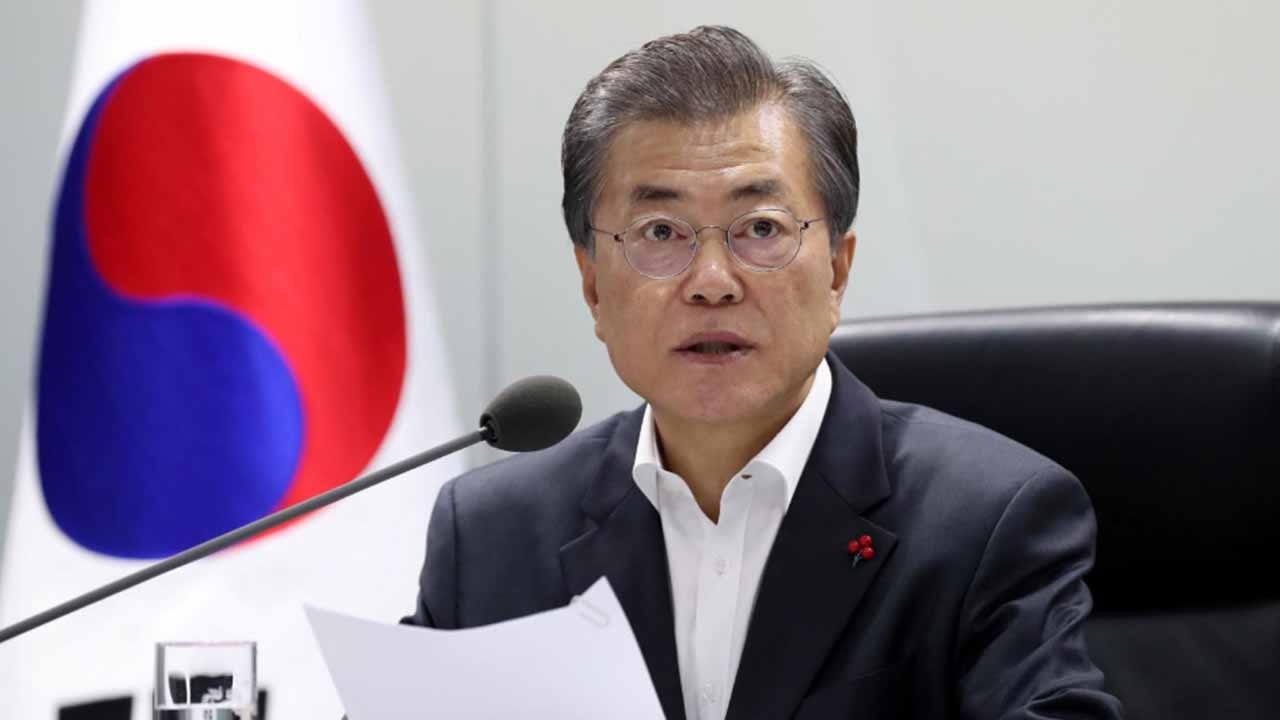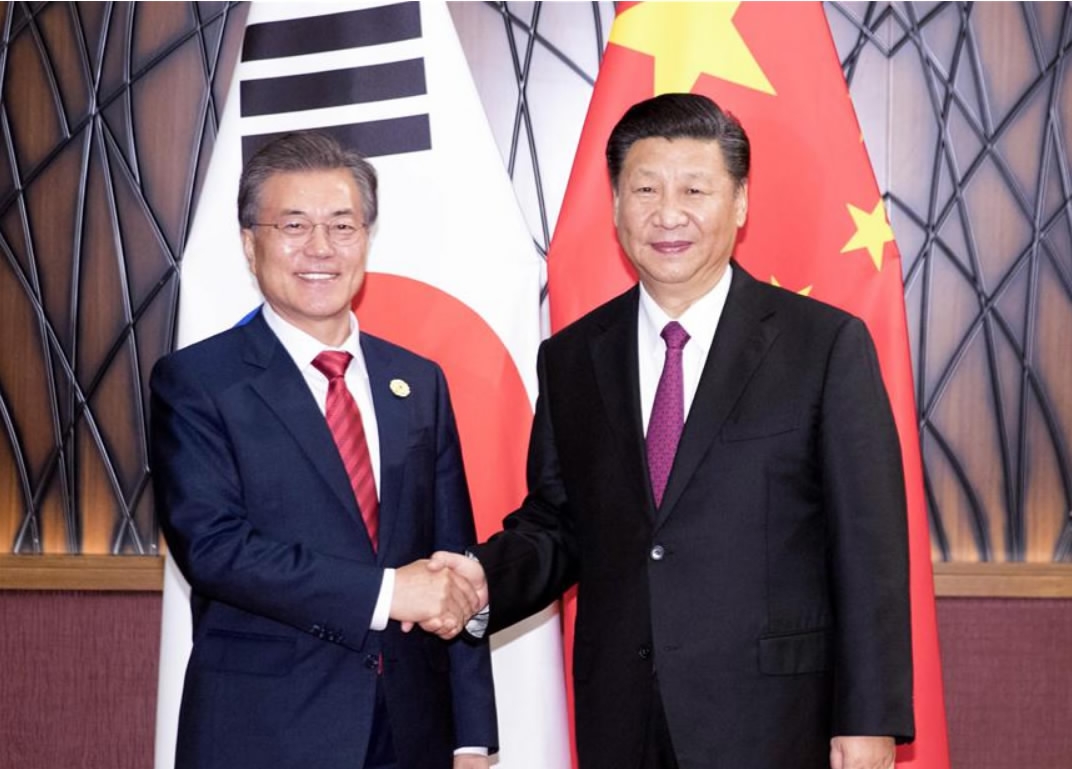
Politics
08:55, 13-Dec-2017
Moon Jae-in arrives in China seeking reconciliation
By Jack Barton

South Korean President Moon Jae-in is arriving in China on Wednesday for a five-day visit, which Seoul hopes will help normalize relations after a frosty period this year.
It will be the third meeting between Moon and Chinese President Xi Jinping this year, the last being at Asia Pacific Economic Cooperation leaders’ meeting in Vietnam.
But they still have plenty to talk about. Their meeting follows the recent launch of a DPRK missile, which many experts said could reach the United States and could soon be capable of carrying a nuclear warhead.
“It is important for South Korea (the Republic of Korea) and China to both agree how to solve the DPRK nuclear problem,” said Woo Jung-yeop, a research fellow at the Sejong Institute. “The second issue is about the deployment of the THAAD in the Korean Peninsula.”
The deployment of the US THAAD anti-missile system earlier this year provoked an economic backlash from China, where there is concern about the range of the system’s radar.

Chinese President Xi Jinping (R) meets with South Korean President Moon Jae-in in Da Nang, Vietnam, Nov. 11, 2017. /Xinhua Photo
Chinese President Xi Jinping (R) meets with South Korean President Moon Jae-in in Da Nang, Vietnam, Nov. 11, 2017. /Xinhua Photo
China is South Korea's biggest trading partner, so the retaliation hit hard.
“The tourism industry is suffering a lot, and the related industry of retail and also the automobile industry. Hyundai motors is suffering a lot still in China, so the damage is huge,” Lee Byung-tae, a professor at Kaist Business College explained.
It’s not just China’s president who has had concerns about THAAD, Moon also voiced skepticism about the THAAD system before becoming president. However, analysts said that widespread public support and ongoing missile tests by the DPRK had made it all but impossible for the president to roll back the deployment.
Since October, relations have begun to improve. Seoul has pledged to not expand THAAD, and Chinese tour operators and companies are relaxing measures – including a ban on group tours to South Korea. But most analysts said a permanent solution to economic issues would rely on a permanent solution to denuclearizing the DPRK.

SITEMAP
Copyright © 2018 CGTN. Beijing ICP prepared NO.16065310-3
Copyright © 2018 CGTN. Beijing ICP prepared NO.16065310-3